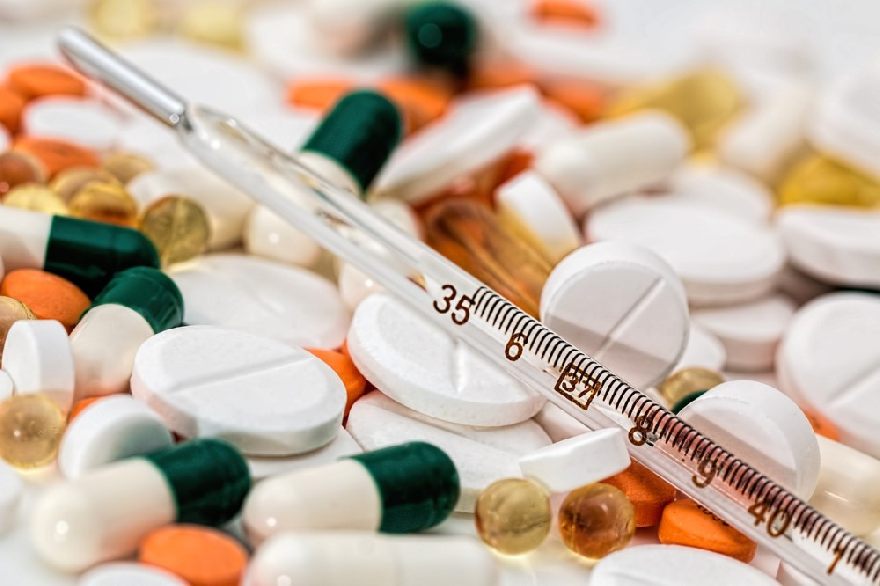The power of the placebo effect related to medicine.
A placebo is the pretense of an action, in the medical sense this is a pretend drug that is often prescribed in old people's homes. A placebo drug is mostly used in comparative studies.
See related Wikipedia entry:
https://wikipedia.org/wiki/Placebo
A placebo does have a positive effect as the patient gains a better feeling and self-confidence.
Widely used in retirement homes for patients who constantly ask for more medication. It also makes the residents feel better as it gives them the feeling that their concerns are being taken care of.
In comparative studies, there is also a difference between groups who are aware of taking a placebo or not.
The placebo has a medical effect.
The patient assumes they are getting an expensive branded drug and this increases their self-esteem.
The placebo effect describes the increased self-esteem and may activate the body's own pharmacy in the immune system. In fact, placebo painkillers sometimes relieve the pain and leave the patient wanting more and more placebos.
An additional link on the subject of the placebo:
https: //www.netdoktor.de/magazin/placebo-die-macht-der-erwartung/
ChatGPT on the placebo effect
The placebo effect refers to the positive change in a person's symptoms or state of health that is attributed to the expectation of a treatment or intervention that has no specific medical benefit in reality. The placebo effect can occur with the administration of placebo drugs as well as with other forms of treatment, such as sham surgery or other non-pharmacological interventions.
The power of the placebo effect is well documented and recognized in the medical field. Placebo groups are often used in clinical trials to determine the actual treatment effect of a new medication or intervention. It compares the group receiving the placebo to the group receiving the actual treatment. The results often show that significant improvements in symptoms or disease progression can be seen in the placebo group, even though the drug or intervention administered has no specific pharmacological effect.
There are various mechanisms that can explain the placebo effect. An important factor is the expectations of the person receiving the treatment. If someone believes that a particular intervention will help, that belief alone can result in symptoms improving. This can be due to neurobiological changes in the brain, such as the release of endorphins or other endogenous substances that relieve pain or increase well-being.
In addition, contextual factors can also play a role, such as trust in the treating physician, the environment of the medical treatment or the general atmosphere of care and support. These factors can increase the person’s trust and confidence and reinforce the placebo effect.
It is important to note that the placebo effect is not a substitute for specific medical treatments. However, it can be an additional factor that can contribute to recovery and improved well-being. The placebo effect is also taken into account in clinical practice, especially in the treatment of diseases in which the subjective impression and well-being of the patient play a major role, such as pain treatment or mental illness.
All in all, the power of the placebo effect shows how complex and varied the interactions between the body, the mind and the environment are. The mind's ability to influence physical health is an intriguing phenomenon that continues to be the subject of intense research.

Credits
Written by T.J. Poschadel










